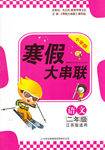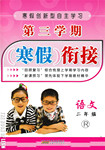题目内容
Your cellphone holds secrets about you. Besides the names and numbers that you’ve programmed into it, traces of your DNA remain on it, according to a new study.
DNA is genetic material that appears in every cell. Like your fingerprint, your DNA is unique to you-unless you have an identical twin. Scientists today usually analyze DNA in blood, saliva(唾液), or hair left behind at the scene of a crime. The results often help detectives identify criminals and victims.
Meghan J. McFadden, a biologist at McMaster University in Hamilton, Ontario, heard about a crime in which the suspect bled onto a cellphone and later dropped it. This made her wonder whether traces of DNA remained on cellphones-even when no blood was involved. To find out, she and a colleague collected flip-style(翻盖式) phones from 10 volunteers. They collected invisible traces of the users from two parts of the phone: the outside, where the user holds it, and the speaker, which is placed at the user’s ear.
The scientists cleaned the phones using a liquid mixture made mostly of alcohol. The aim of washing was to remove all delectable traces of DNA. The owners got their phones back for another week. Then they returned the phones and the researchers collected traces on each phone once more. They discovered DNA that belonged to the phone’s owner on each of the phones.
Surprisingly, DNA was even picked up immediately after the phones were cleaned. That suggests that washing won’t remove all traces of evidence from a criminal’s cellphone. So cellphones can be added to the list of clue the can settle a crime-scene investigation.
68. What’s the main idea of the passage?
A. The cellphone means most secrets of its owner.
B. McFadden is famous for her secrets of its owner.
C. The investigation of a crime is a hard job.
D. DNA can be available on the user’s cellphone.
69. In a crime-scene investigation, now experts are likely to turn to .
A. the criminal’s fingerprint B. the DNA analysis of physical items
C. the detectives D. the criminal’s cellphone
70. According to the passage, McFadden was inspired by .
A. the secrets stored in people’s cellphones B. the special characters of DNA
C. a cellphone-involved case D. the challenging job of detectives
71. According to the passage, the potential application of the new study would be .
A. identifying criminals B. designing new cellphones
C. protecting individual privacy D. preventing cellphone-involved crime
【小题1】D
【小题2】B
【小题3】C
【小题4】A

 寒假大串联黄山书社系列答案
寒假大串联黄山书社系列答案 寒假创新型自主学习第三学期寒假衔接系列答案
寒假创新型自主学习第三学期寒假衔接系列答案